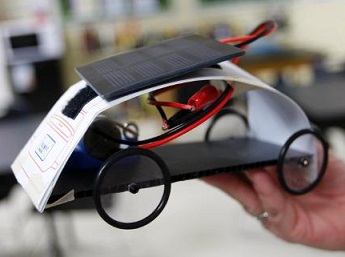You may be familiar with the website “Spurious Correlations”:

You knew cheese was bad for you, but maybe not exactly why…

Bring on Toddlers & Tiaras – it could save lives.

Accio Spinning Blades!
It’s a humorous site which makes a serious and rather important point:

We all know this. Most of us can identify it academically, in abstract situations. In ‘real life’, however, it all too often combines with another fascinating bit of human fallibility: ‘confirmation bias’.
Confirmation bias is the tendency to screen out or forget facts or situations which don’t support our existing beliefs, while remembering with emphasis those which do. The thing where it seems to rain every time you wash your car (or do a ceremonial dance)? Celebrities dying in threes? The way people from certain racial groups or religious faiths seem to always X, Y, or Z? Yeah, that’s largely confirmation bias.
It’s normal. It’s human. But we could be a little more self-aware while doing it.
I had a principal several years back who simply could not get enough motivational folderol. The posters, the sayings, the guest speakers who turn a splattered canvas into a rainbow sunrise of starfish dream destiny – the building was inundated in hopeful banality.
 Every year came the ‘ring assembly’. National company, glossy brochures, and a thousand students held captive to their insistence that EVERYONE regardless of background, want, or financial circumstances, could and should go deeply into debt for the unequalled splendor of class ringdom.
Every year came the ‘ring assembly’. National company, glossy brochures, and a thousand students held captive to their insistence that EVERYONE regardless of background, want, or financial circumstances, could and should go deeply into debt for the unequalled splendor of class ringdom.
I’d assumed the school received some sort of kickback for the opportunity to apply this fiscal peer-pressure on powerless minors en masse, but I was mistaken. Why, then, did we devote half of a school day – an otherwise potentially instructional school day – to arm-twisting on behalf of some corporation?
This principal explained with energy and enthusiasm that students who purchased a class ring were 68% more likely to graduate. He believed in his spirited core that the connection to school and the commitment to the date engraved on the side were driving students to succeed – to stay in school, working towards graduation, bursting with personal and school pride.
And maybe there’s something to that element.
But far more glaring is the reality he missed – that students who can afford a very optional expense like a class ring are far more likely to graduate than students who can’t. There’s definite correlation, but not because one causes the other.
He wasn’t alone. This was the same year the district wanted to remove 2 of the 4 microwaves from the upstairs lounge in the name of ‘conservation’. There were 12 of us using those microwaves each day, apparently running up quite the utility bill. If we were to take turns with half the microwaves, well – the savings!
You see the problem. There may have been reduced total usage, but only because on any given day half of us wouldn’t have time to eat before our lunch period was over.
It wasn’t malicious, and it wasn’t particularly stupid – mostly. The powers-that-be went in with preset expectations and assumptions. The solution only made sense because they’d already decided on their preferred course of action.
Confirmation bias can be particularly ugly when a relationship has soured and emotions are high. Positives are viewed with skepticism or noticed not at all, while every slip, tone, or shortcoming “just goes to prove” some unpleasantry or another. Causes are not merely speculated upon – they are ASSIGNED to unfortunate correlations. For those on the periphery, the fallacies may be less emotionally loaded but are no less ubiquitous.

Spurious correlations and confirmation bias create quite the salmagundi of doom when it comes to education ‘reform’. Most of us enter those discussions already pretty sure where we’re going to end up. We may even sigh with resignation. Obviously we’re far more experienced and insightful than the other buffoons and schemers in the mix. And – whether we admit it to ourselves or not – most of us have several sacred presets hidden in the back of our motivation which we do NOT want threatened by trivialities like facts, reasoning, or experiences.
Once we despise a major player – Gates, Rhee, Duncan, etc. – no statement they utter or action they take can be anything less than nefarious. Wendy Kopp (TFA) could lead a team into a blazing inferno at the orphanage, perish saving youth from the flames, and the major blogs the next day would lead with skepticism regarding how many of them were going to become CAREER firefighters.
Mostly, though, we’re on the receiving end (of, er… spurious correlations and confirmation bias.) We expect it from students – they have their own reasons for seeing and hearing what they wish and discarding the rest. We get it from parents who need to maintain their own narratives regarding their flawless angel-babies. The local media choose their angles based on what’s currently trending, what makes the best story, or perhaps simply how charming the superintendent was last time they were interviewed. In each case, they utilize facts that fit their paradigm.
There’s no need to lie – there are enough versions of the truth to go around.
Administrators are under a variety of pressures over test scores, discipline, attendance, and a dozen other things – some semi-rational, many nowhere near. Given how little they can directly control, their cause-effect narratives can be… well, just about anything that gives them a button to push or a factor to influence.

As to the major “reformers” – in business, in politics, writing books, or leading charters – it’s true there are those willing to consciously fabricate or manipulate to promote their agendas. Some may even be very bad people.
But I think it’s worth considering that they, too, may have their own narratives into which all subsequent input adapts itself. We all know how easily people form “camps” – sometimes over race or religion, sometimes over oblong pigskins. Once formed, party association radically shapes, well… everything.
It’s a basic human tendency. There’s no fundamental shame. A certain amount of assuming and generalizing may even be efficient, or evolutionarily useful.

But we can fight it. We can try to be a LITTLE more aware of our own foibles, and assumptions.
The lack of such introspection is largely why I think so many educators feel rather hostile towards the presumptive “reform” movements in play. That’s why it’s sometimes difficult to “be reasonable,” or acknowledge when those seeking to make changes make a good point or two, or to keep our own emotions in check.
Because it doesn’t always seem like those driving the so-called “reforms” are actually TRYING to see the complex realities of the fields they seek to overhaul. They too often appear to have their minds made up before they even began looking at me, my kids, my job, or my world.
My kids. My job. My world. It’s hard not to take some things personally.
We must call out spurious causation and confirmation bias when we do catch a glimpse – in our opponents, our allies, or ourselves. In the meantime, perhaps a tiny bit of cautionary humility wouldn’t do our classrooms, our reform-based tweets, or our relationships much harm.

 It’s difficult to question things we don’t realize we assume. For example, few of us ponder why we easily trust our family doctor to diagnose pretty much ANY part of our body, internal or external, except our mouth. Our mouth, it seems, is so darned complicated and unique compared to, say, our aortic valve or epidermal sheath, that only SPECIAL DIFFERENT OTHER TYPES OF DOCTORS can even LOOK at this oral outlier.
It’s difficult to question things we don’t realize we assume. For example, few of us ponder why we easily trust our family doctor to diagnose pretty much ANY part of our body, internal or external, except our mouth. Our mouth, it seems, is so darned complicated and unique compared to, say, our aortic valve or epidermal sheath, that only SPECIAL DIFFERENT OTHER TYPES OF DOCTORS can even LOOK at this oral outlier. School is rife with these sorts of assumptions. We simply MUST shuffle students from boxed area to boxed area in slightly-under-an-hour increments. We have roughly the same number of kids in each class, one subject per teacher, and at some point papers of various kinds must be placed in baskets to “grade.” Eventually, all experiences must reduce to a number between 1 – 100 and one of five letters, none of which can be ‘E’ because that’s stupid and wouldn’t tell us anything – unlike, say, ‘C’.
School is rife with these sorts of assumptions. We simply MUST shuffle students from boxed area to boxed area in slightly-under-an-hour increments. We have roughly the same number of kids in each class, one subject per teacher, and at some point papers of various kinds must be placed in baskets to “grade.” Eventually, all experiences must reduce to a number between 1 – 100 and one of five letters, none of which can be ‘E’ because that’s stupid and wouldn’t tell us anything – unlike, say, ‘C’.  And if students behave, and keep the right letters on their weekly personal-reduction-to-a-point-value report, they may be allowed to play sports, or participate in drama, or band, or debate, or cheer, or dance, or some other ‘extra-curricular’.
And if students behave, and keep the right letters on their weekly personal-reduction-to-a-point-value report, they may be allowed to play sports, or participate in drama, or band, or debate, or cheer, or dance, or some other ‘extra-curricular’.  Most of these kids are never going to be professional athletes. But neither are they likely to become professional mathematicians, or chemists, or historians, or novelists. The skills and knowledge gained in each of those realms nevertheless serve a larger good. They help to form a fuller, better, hopefully somewhat happier person.
Most of these kids are never going to be professional athletes. But neither are they likely to become professional mathematicians, or chemists, or historians, or novelists. The skills and knowledge gained in each of those realms nevertheless serve a larger good. They help to form a fuller, better, hopefully somewhat happier person. I sat in yet another #STEM breakfast recently and heard extolled the glories of project-based learning with clear assessments whose rubrics were known in advance and a process built on collaboration – what the rest of us might call ‘band rehearsal’, ‘theater’, ‘competitive debate’, or ‘football practice’.
I sat in yet another #STEM breakfast recently and heard extolled the glories of project-based learning with clear assessments whose rubrics were known in advance and a process built on collaboration – what the rest of us might call ‘band rehearsal’, ‘theater’, ‘competitive debate’, or ‘football practice’.